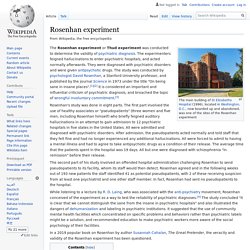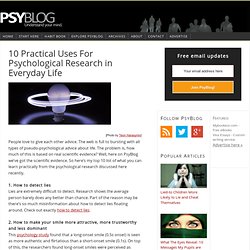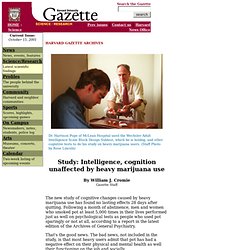

List of cognitive biases. Systematic patterns of deviation from norm or rationality in judgment Cognitive biases are systematic patterns of deviation from norm and/or rationality in judgment. They are often studied in psychology, sociology and behavioral economics.[1] Although the reality of most of these biases is confirmed by reproducible research,[2][3] there are often controversies about how to classify these biases or how to explain them.[4] Several theoretical causes are known for some cognitive biases, which provides a classification of biases by their common generative mechanism (such as noisy information-processing[5]). Gerd Gigerenzer has criticized the framing of cognitive biases as errors in judgment, and favors interpreting them as arising from rational deviations from logical thought.[6] Explanations include information-processing rules (i.e., mental shortcuts), called heuristics, that the brain uses to produce decisions or judgments.
Belief, decision-making and behavioral[edit] Social[edit] [edit] Rosenhan experiment. Experiment to determine the validity of psychiatric diagnosis Rosenhan's study was done in eight parts.

The first part involved the use of healthy associates or "pseudopatients" (three women and five men, including Rosenhan himself) who briefly feigned auditory hallucinations in an attempt to gain admission to 12 psychiatric hospitals in five states in the United States. All were admitted and diagnosed with psychiatric disorders. After admission, the pseudopatients acted normally and told staff that they felt fine and had no longer experienced any additional hallucinations. All were forced to admit to having a mental illness and had to agree to take antipsychotic drugs as a condition of their release. The second part of his study involved an offended hospital administration challenging Rosenhan to send pseudopatients to its facility, whom its staff would then detect.
While listening to a lecture by R. Pseudopatient experiment[edit] General Hallucinogen Information. Psychedelics. TRAVEL. Locations. Travel Webs. Travel Blogs. Travel blogs. Volunteer. WWOOFing. True Travellers Society - Free Volunteer Work and Meaningful Travel Abroad. Organize Yourself. Personal productivity. Endocannabinoids. How WeedMaps Makes More Than $400,000 a Month. For most of the U.S., marijuana is an illicit pleasure.

But in some states--California, Colorado, and Washington, to name a few--it's a legal vice, provided you have a medical marijuana card. The marijuana network can be daunting for the uninitiated, with offerings like Blue Dream, Strawberry Cough, and Green Crack on dispensary menus. How are patients supposed to navigate? That's where WeedMaps.com comes in. In just two years, the WeedMaps website (tagline: Find Your Bud) has grown to more than $400,000 each month in revenue and 25,000 visitors each day. Like many a successful entrepreneur, Hartfield realized there was a gap in the market. At first, Hartfield offered dispensaries the opportunity to display listings for free.
In January 2010, WeedMaps started charging for listings. Marijuana Strain Effects. Plants that Contain DMT. Sleep. Sleeping. Psychology Studies. Pop psychology. Sleep -Knowledge. 10 Practical Uses For Psychological Research in Everyday Life. People love to give each other advice.

The web is full to bursting with all types of pseudo-psychological advice about life. The problem is, how much of this is based on real scientific evidence? Well, here on PsyBlog we’ve got the scientific evidence. So here’s my top 10 list of what you can learn practically from the psychological research discussed here recently. 1. 2. 3. 4. 5. Study: Intelligence, cognition unaffected by heavy marijuana use. By William J.

Cromie Gazette Staff The new study of cognitive changes caused by heavy marijuana use has found no lasting effects 28 days after quitting. Following a month of abstinence, men and women who smoked pot at least 5,000 times in their lives performed just as well on psychological tests as people who used pot sparingly or not at all, according to a report in the latest edition of the Archives of General Psychiatry. That's the good news. The bad news, not included in the study, is that most heavy users admit that pot has had a negative effect on their physical and mental health as well their functioning on the job and socially. "If there's one thing I've learned from studying marijuana for more than a decade, it's that proponents and opponents of the drug will put opposite spins on these findings," says Harrison Pope, a Harvard professor of psychiatry and leader of the research.
People Reading. Psych Studies & Testing. List of cognitive biases. Top 10 Thinking Traps Exposed. Our minds set up many traps for us. Unless we’re aware of them, these traps can seriously hinder our ability to think rationally, leading us to bad reasoning and making stupid decisions. Features of our minds that are meant to help us may, eventually, get us into trouble. Here are the first 5 of the most harmful of these traps and how to avoid each one of them. 1. The Anchoring Trap: Over-Relying on First Thoughts “Is the population of Turkey greater than 35 million? Lesson: Your starting point can heavily bias your thinking: initial impressions, ideas, estimates or data “anchor” subsequent thoughts. Rosenhan experiment. NeuroSoup's Channel. Animals.